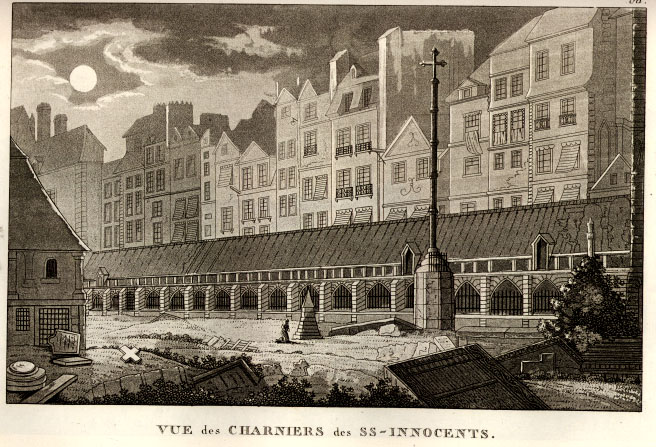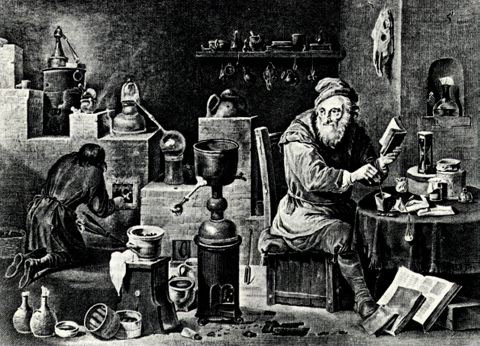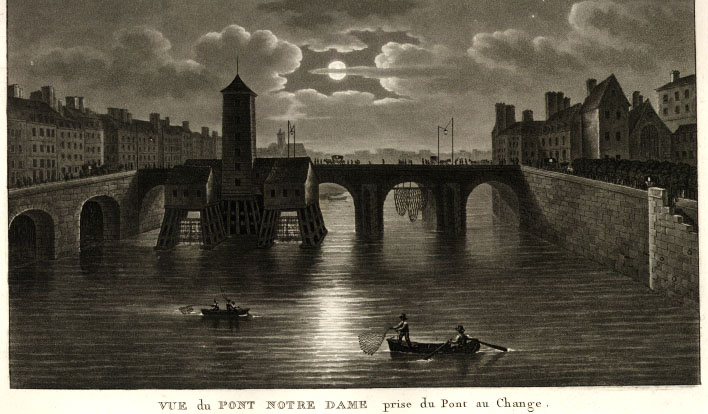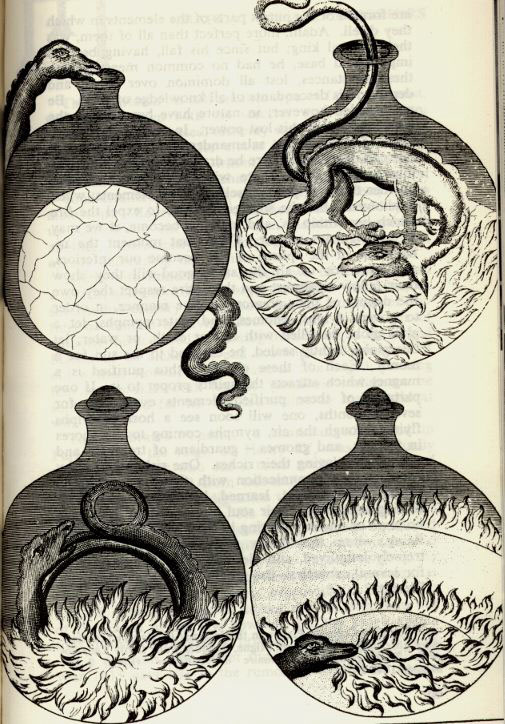Perfume, excerpts:
...the stench was foulest in Paris, which was the largest city of France.
And in turn there was a spot in Paris under the sway of a particularly
fiendish stench: between the rue aux Fers and the rue de la Ferronnerie,
the Cimetière des Innocents to be exact. For eight hundred years
the dead had been brought here from the Hôtel-Dieu and from the surrounding
parish churches, for eight hundred years, day in, day out, corpses by the
dozens had been carted here and tossed into long ditches, stacked bone
upon bone for eight hundred years in the tombs and charnel houses. Only
later—on the eve of the Revolution, after several of the grave pits had
caved in and the stench,had driven the swollen graveyard's neighbors to
more than mere protest and to actual insurrection—was it finally closed
and abandoned. Millions of bones and skulls were shoveled into the catacombs
of Montmartre and in its place a food market was erected.
Here, then, on the most putrid spot in the whole kingdom, Jean-Baptiste
Grenouille was born on July 17, 1738. It was one of the hottest days of
the year. The heat lay leaden upon the graveyard, squeezing its putrefying
vapor, a blend of rotting melon and the fetid odor of burnt animal horn,
out into the nearby alleys. When the labor pains began, Grenouille's mother
was standing at a fish stall in the rue aux Fers, scaling whiting that
she had just gutted. The fish, ostensibly taken that very morning from
the Seine, already stank so vilely that the smell masked the odor of corpses.
Grenouille's mother, however, perceived the odor neither of the fish nor
of the corpses, for her sense of smell had been utterly dulled, besides
which her belly hurt, and the pain deadened all susceptibility to sensate
impressions. She only wanted the pain to stop, she wanted to put this revolting
birth behind her as quickly as possible. It was her fifth. She had effected
all the others here at the fish booth, and all had been stillbirths or
semi-stillbirths, for the bloody meat that emerged had not differed greatly
from the fish guts that lay there already, nor had lived much longer, and
by evening the whole mess had been shoveled away and carted off to the
graveyard or down to the river. It would be much the same this day...
The little man named Grenouille first uncorked the demijohn of alcohol.
Heaving the heavy vessel up gave him difficulty. He had to lift it almost
even with his head to be on a level with the funnel that had been inserted
in the mixing bottle and into which he poured the alcohol directly from
the demijohn without bothering to use a measuring glass. Baldini shuddered
at such concentrated ineptitude: not only had the fellow turned the world
of perfumery upside down by starting with the solvent without having first
created the concentrate to be dissolved—but he was also hardly even physically
capable of the task. He was shaking with exertion, and Baldini was waiting
at any moment for the heavy demijohn to come crashing down and smash everything
on the table to pieces; The candles, he thought, for God's sake, the candles!
There s going to be an explosion, he'll burn my house down . . . ! And
he was about to lunge for the demijohn and grab it out of the madman's
hands when Grenouille set it down himself, getting it back on the floor
all in one piece and stoppered it. A clear, light liquid swayed in the
bottle— not a drop spilled. For a few moments Grenouille panted for breath,
but with a look of contentment on his face as if the hardest part of the
job were behind him. And indeed, what happened now proceeded with such
speed that Baldini could hardly follow it with his eyes, let alone keep
track of the order in which it occurred or make even partial sense of the
procedure.
Grenouille grabbed apparently at random from the row of essencesin
their flacons, pulled out the glass stoppers, held the contents under his
nose for an instant, splashed a bit of one bottle, dribbled a drop or two
of another, poured a dash of a third into the funnel, and so on. Pipette,
test tube, measuring glass, spoons and rods—all the utensils that allow
the perfumer to control the complicated process of mixing— Grenouille did
not so much as touch a single one of them. It was as if he were just playing,
splashing and swishing like a child busy cooking up some ghastly brew of
water, grass, and mud, which he then asserts to be soup. Yes, like a child,
thought Baldini; all at once he looks like a child, despite his ungainly
hands, despite his scarred, pockmarked face and his bulbous old-man's nose.
...There was just such a fanatical child trapped inside this young man,
standing at the table with eyes aglow, having forgotten everything
around him, apparently longer aware that there was anything else in the
laboratory but himself and these bottles that he tipped into the funnel
with nimble awkwardness to mix up an insane brew that he would confidently
swear—and would truly believe!—to be the exquisite perfume Amor and Psyche.
Baldini shuddered as he watched the fellow bustling about in the candlelight,
so shockingly absurd and so shockingly self-confident. In the old days—so
he thought, and for a moment he felt as sad and miserable and furious as
he had that afternoon while gazing out onto the city glowing ruddy in the
twilight—in the old days people like that simply did not exist; he was
an entirely new specimen of the race, one that could arise only in ex hausted,
dissipated times like these....
Baldini was so busy with his personal exasperation and disgust at the
age that he did not really comprehend what was intended when Grenouille
suddenly stoppered up all the flacons, pulled the funnel out of the mixing
bottle, grabbed the neck of the bottle with his right hand, capped it with
the palm of his left, and shook it vigorously. Only when the bottle had
been spun through the air several times, its precious contents sloshing
back and forth like lemonade between belly and neck, did Baldini let loose
a shout of rage and horror "Stop it!
...even as he spoke, the air around him was saturated with the odor
of Amor and Psyche. Odors have a power of persuasion stronger than that
of words, appearances, emotions, or will. The persuasive power of an odor
cannot be fended off, it enters into us like breath into our lungs, it
fills us up, imbues us totally. There is no remedy for it.
Grenouille had set down the bottle, removing his perfume-moistened
hand from its neck and wiping it on his shirttail. One, two steps back—and
the clumsy way he hunched his body together under Baldini's tirade sent
enough waves rolling out into the room to spread the newly created scent
in all directions. Nothing more was needed. True, Baldini ranted on, railed
and cursed, but with every breath his outward show of rage found less and
less inner nourishment. He sensed he had been proved wrong, which was why
his peroration could only soar to empty pathos. And when he fell silent,
had been silent for a good while, he had no need of Grenouille's remark:
"It's all done." He knew that already.
|



